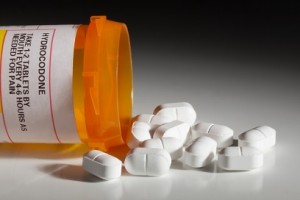Some patients with chronic pain say they are having increasing trouble obtaining prescription painkillers. This trend may be an unintended consequence of the government’s attempts to reduce illicit use of prescription drugs, PBS NewsHour reports.
Bill Napier, who owns the independent Panama Pharmacy in Jacksonville, Florida, says drug wholesalers who supply his store no longer distribute the amount of medication he needs. “I turn away sometimes 20 people a day,” he said.
Napier says last year agents from the Drug Enforcement Administration (DEA) came to discuss the narcotics he dispensed. “They showed me a number, and they said that if I wasn’t closer to the state average, they would come back. So I got pretty close to the state average,” he said. Napier acknowledges he had to dismiss some patients in order to get to the required number.
Until several years ago, Florida was considered a haven for “pill mills,” which sold prescription painkillers to people directly for cash. Oxycodone-related deaths in Florida increased 118.3 percent from 2007 to 2010.
The rate began to decline in 2010 due to a variety of factors, including the introduction of abuse-deterrent oxycodone formulations, law enforcement crackdowns on “pill mills,” and a Florida law that imposed new penalties for physicians who overprescribe medication.
Jack Riley, acting deputy administrator of the DEA, says an increase in law enforcement activity has led to the decline in opioid overdose deaths in Florida. He says law enforcement efforts are not to blame for rationing painkillers.
“I’m not a doctor. We do not practice medicine. We’re not pharmacists. We obviously don’t get involved in that,” he said. “What we do do is make sure the people that have the licenses are as educated as possible as to what we’re seeing, and that they can make informed decisions as they do dispense.”
